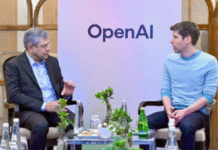London– Making things worse for Facebook, which is already mired in controversies surrounding data leaks of tens of millions of its users, a new research has found that the social media giant tracks even those Android users who do not use the app.
Facebook routinely tracks users, non users and logged out users outside its platform, said the study by UK-based charity Privacy International.
App developers share data with Facebook through the Facebook Software Development Kit (SDK), a set of software development tools that help developers build apps for a specific operating system, showed the findings.
Scrutiny of Facebook increased manifold since it revealed earlier this year how the now defunct London-based political consultancy, Cambridge Analytica, improperly got access to data of up to 87 millions users.
For the latest study, Privacy International examined 34 apps on Android, each with an install base from 10 to 500 million.
The apps included language-learning tool Duolingo, travel and restaurant website TripAdvisor, job database Indeed and flight search engine Skyscanner among others.
The researchers analysed what data these apps transmitted to Facebook through the Facebook SDK. All apps were tested between August and December 2018.
The research, presented at Chaos Computer Congress in Leipzig, Germany, showed that that at least 61 per cent of apps that Privacy International tested automatically transfer data to Facebook the moment a user opens the app.
“This happens whether people have a Facebook account or not, or whether they are logged into Facebook or not,” the report said.
This data reveals the fact that a user is using a specific app, every single time that user opens an app.
“In our analysis, apps that automatically transmit data to Facebook share this data together with a unique identifier, the Google advertising ID (AAID),” the researchers said.
The primary purpose of advertising IDs, such as the Google advertising ID (or Apple’s equivalent, the IDFA) is to allow advertisers to link data about user behaviour from different apps and web browsing into a comprehensive profile, according to the report.
Responding to the findings, Google said that users can disable ads personalisation via a control in the Google Account controls.
This will stop Google advertising services from creating user profiles for advertising purposes or for targeting users with personalised advertising.
Facebook told Privacy International that sharing data is “common practice for many companies” and is useful for both users and the companies involved, The Independent reported on Wednesday.
“This information is important for helping developers understand how to improve their apps and for helping people receive relevant advertising in a privacy-protective way,” Facebook said.
“We do this in a transparent manner by explaining the practice through our Data Policy and Cookies Policy, and by using Google’s advertising identifier, which can be controlled centrally by people using their device settings,” it added. (IANS)






